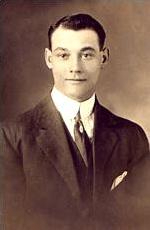LINK Letters From An American 11/11/2021
Heather Cox Richardson
Our Veterans Day falls on what used to be called Armistice Day. On that day in 1918, the major fighting of World War I ended.
My grandfather fought in France in WWI, but when I think of that horrific, interminable conflict, and all that it says about war, I think not of him, but of George Lawrence Price.
In 1918, Price was a private serving with Company A of the 28th Battalion of the Canadian Expeditionary Force in Belgium. Along with all the other exhausted soldiers, Price had heard that their leaders had negotiated for the guns in Europe to fall silent once and for all on the eleventh hour of the eleventh day of the eleventh month. The soldiers hardly dared to hope the peace would really come to pass.
As the moment of the armistice approached, a few soldiers continued to skirmish, and Price's company set out to take control of the small town of Havre. As they crossed a canal to their target, a German gunner hidden in a row of houses tried to stop them. Once safely across, just ten minutes before the armistice, the Canadian patrol began to look for the German soldier who had harassed them. They found no one but civilians in the first two homes they searched. And then, as they stepped back into the street, a single shot hit Price in the chest. He fell into the arms of his comrade, who pulled him back into the house they had just left. As Price died, German soldiers cleared their guns in a last burst of machine-gun fire that greeted the armistice.
Price’s life ended just two minutes before the Great War was over.
Even at the time, Price’s death seemed to symbolize the pointless slaughter of WWI. When an irony of history put Price in the same cemetery as the first Allied soldier to die in the conflict, disgusted observers commented that the war had apparently been fought over a half-mile of land. In the years after the war ended, much was made of George Price, the last soldier to die in the Great War.
But ever since I learned Price’s story, I have been haunted by the unknown story of the German sniper who killed him. What made that man take that one last life, two minutes before the war ended? Was it rage? Fear? Had the war numbed him into a machine that simply did its job? Or was it a final, deadly act of revenge against a world that had changed beyond his reckoning?
And what did the knowledge that he had stolen another man’s future—legally, but surely immorally—do to the man who pulled that trigger? He went back to civilian life and blended into postwar society, although the publicity given to Price's death meant that he must have known he was the one who had taken that last, famous life in the international conflagration. The shooter never acknowledged what he had done, or why.
Price became for the world a heartbreaking symbol of hatred’s sheer waste. But the shooter? He simply faded into anonymity, becoming the evil that men do.


Enjoy being online again!
Welcome to the community of good people who base their values on evidence and appreciate civil discourse - the social network you will enjoy.Create your free account
2 comments
Feel free to reply to any comment by clicking the "Reply" button.It was a huge mistake in announcing the end beforehand. Everyone wanted to be the last person to shoot or kill someone before the final minute. Some of the most heavy fighting was during that period.
I really wonder if the sniper moved beyond the rage that made him fire at Price or if he ended up supporting hitler and the nazis when they came along.
Enjoy being online again!
Welcome to the community of good people who base their values on evidence and appreciate civil discourse - the social network you will enjoy.Create your free account
Share this post
Related Groups More
World Music
1329 members
Categories
Agnostic does not evaluate or guarantee the accuracy of any content. Read full disclaimer.






